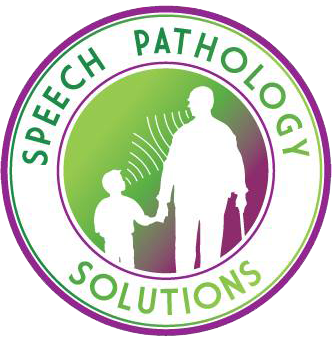A stroke is a life-altering and traumatic event that can leave an individual with lasting physical and mental impairments. Individuals recovering from a stroke often have difficulty communicating, swallowing, and speaking clearly. Speech therapy can help those who have had a stroke regain their ability to communicate effectively by providing them with techniques and strategies to overcome the challenges associated with the condition.
Recovering from a stroke can be an incredibly challenging process. Communication is one of the most important skills used to interact with others, so having difficulty communicating can lead to feelings of frustration and isolation for many people who have experienced a stroke.
Communication Skills
Aphasia, one of the most common stroke-related results, is caused by damage to the part of the brain that controls language.
There are two types of aphasia: fluent and non-fluent. An individual with fluent aphasia is able to speak fluently but their sentences often do not make sense. They also lose the ability to understand the meaning of the words they hear making it difficult to understand others. An individual with non-fluent aphasia will have difficulty speaking and their words may be missing sounds and their sentences may be missing words. However, their message is still often able to be understood. Fluent and non-fluent aphasia both have characteristics of receptive and expressive language disorders.
Other stroke-related communication difficulties include dysarthria which causes difficulty with speech production and voice but does not impair the individual ability to understand others. Cognitive communication deficits can also result from a stroke and cause difficulty with executive functions such as initiation, attention, organization, memory, and problem-solving.
Swallowing
The effects of a stroke can also lead to difficulty swallowing. This is referred to as dysphagia, and it occurs when the muscles used for swallowing become weakened. Dysphagia can result in aspiration which is when food or liquid is accidentally inhaled into the lungs. This can be life-threatening, so it’s important that individuals with dysphagia receive treatment as soon as possible. The inability to swallow properly can also lead to poor nutrition, pneumonia, and other complications.
The Benefits of Speech Therapy
Speech therapy can help those who have experienced a stroke regain their language skills and improve their ability to communicate effectively. Speech therapists will typically assess an individual’s expressive and receptive language abilities, as well as their ability to swallow safely. They will then develop personalized goals and activities tailored towards each patient’s needs in order to help them recover as much of their language skills as possible.
Speech therapy to help an individual recovering from a stroke can include:
- Breathing exercises to help regulate breathing while speaking
- Oral motor exercises to improve adequate movement of the articulators when forming words
- Practicing speech sounds through repetition and focusing on clarity
- Naming pictures to strengthen the connection between words and objects
- Practice forming sentences to improve speech beyond single-word formation
Speech therapists will also work with patients on voice management, helping them to modify their pitch, volume, and rhythm in order to maximize the clarity of their speech. For those who have difficulty swallowing after a stroke, speech therapists can develop exercises to strengthen the muscles used for swallowing and teach safe eating and drinking techniques.
By engaging in regular speech therapy sessions, individuals who have suffered from a stroke can make significant progress in regaining their communication abilities. Recovering communication and swallowing skills is an important part of recovery following a stroke, and can ultimately improve quality of life. With the help of qualified speech therapists, those impacted by stroke can experience improved speaking ability, a better understanding of what others are saying, and safer swallowing.
Recovering from a Stroke? Speech Pathology Solutions Can Help
If you or a loved one has experienced a stroke, it is important to seek help from a qualified speech therapist as soon as possible. A speech therapist can develop personalized goals and activities tailored toward helping you regain your language skills and improve your ability to communicate effectively.
Recovering communication and swallowing abilities after a stroke may seem like an overwhelming task. However, with the help of speech therapy, these skills can be regained in order to improve your health and quality of life.
At Speech Pathology Solutions, we provide the highest quality of speech therapy in NJ for individuals recovering from a stroke Every client receives a comprehensive standardized evaluation that enables our therapists to create a treatment plan that addresses your specific challenges. Our mission is to provide comprehensive, affordable, and convenient skilled Speech Language Pathology services for Monmouth, Ocean, and Atlantic County residents.
Contact us today to schedule a comprehensive evaluation and let us determine effective therapy to help you regain your communication and swallowing skills!

